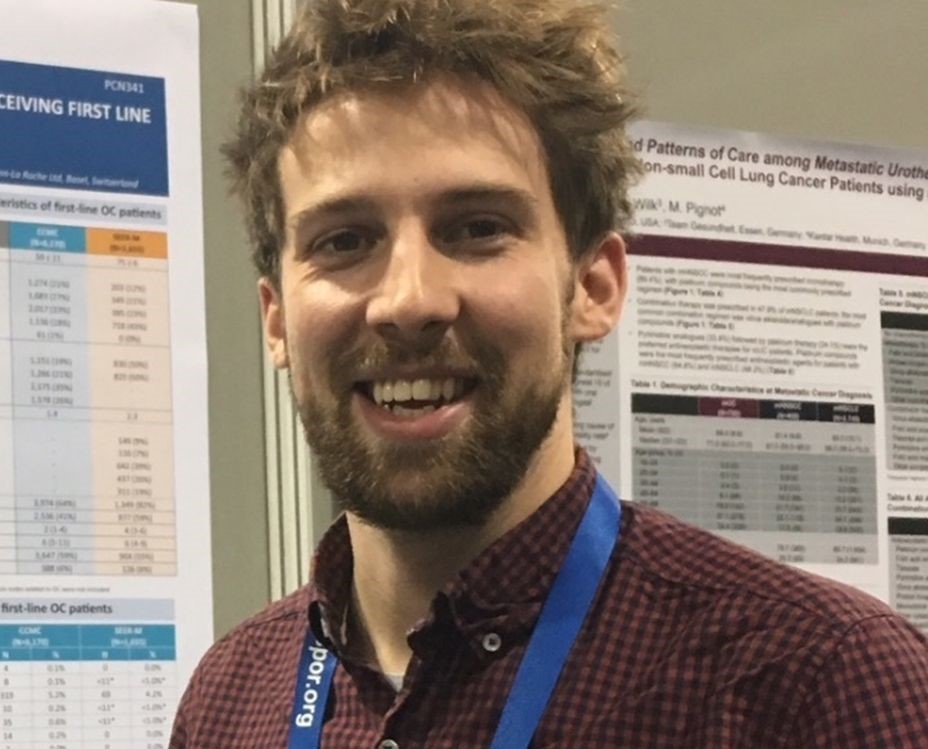Career path to date:
I completed my BSc Mathematics at Sheffield Hallam University, MSc Applied Statistics at Birkbeck, University of London and am currently studying part-time for a PhD in pharmacoepidemiology at Maastricht UMC+ in the Netherlands. Roche supported me as I pursued my Master’s degree and currently ongoing PhD alongside working. While working for Roche I have had the opportunity to work in 3 different roles and even move countries (UK to Switzerland).
I have been working in the Personalized Health Care Data Science department in Basel, Switzerland for almost 4 years. During this time, I’ve been able to work in multiple disease areas, so I’ve learnt a lot since joining.
A typical day at work:
A mix of meetings and research, I guess around 50-50 overall. Generally, we try to keep meetings to a minimum, but meeting your colleagues and stakeholders regularly is the best way to make sure that everyone stays aligned on the objectives.
IT systems, access to data, and analytic environments are all set up very nicely to ensure that the time we get to devote to deriving insights from data can be most productive. The role of data and analytics in personalised healthcare is constantly expanding and being redefined, with many new and exciting projects available to people in the department.
The best part of the role:
Generally, I enjoy learning and understanding everything related to epidemiology – such as natural history of disease, predictors of safety and effectiveness of treatments in the real world setting, and supporting our clinical trials.
I like collaborating with scientists to help the setting and prioritising of research questions in alignment with stakeholder needs. Then, once these questions and objectives are set, as an analyst I deal with large and complex databases that contain the keys to unlocking these questions.


